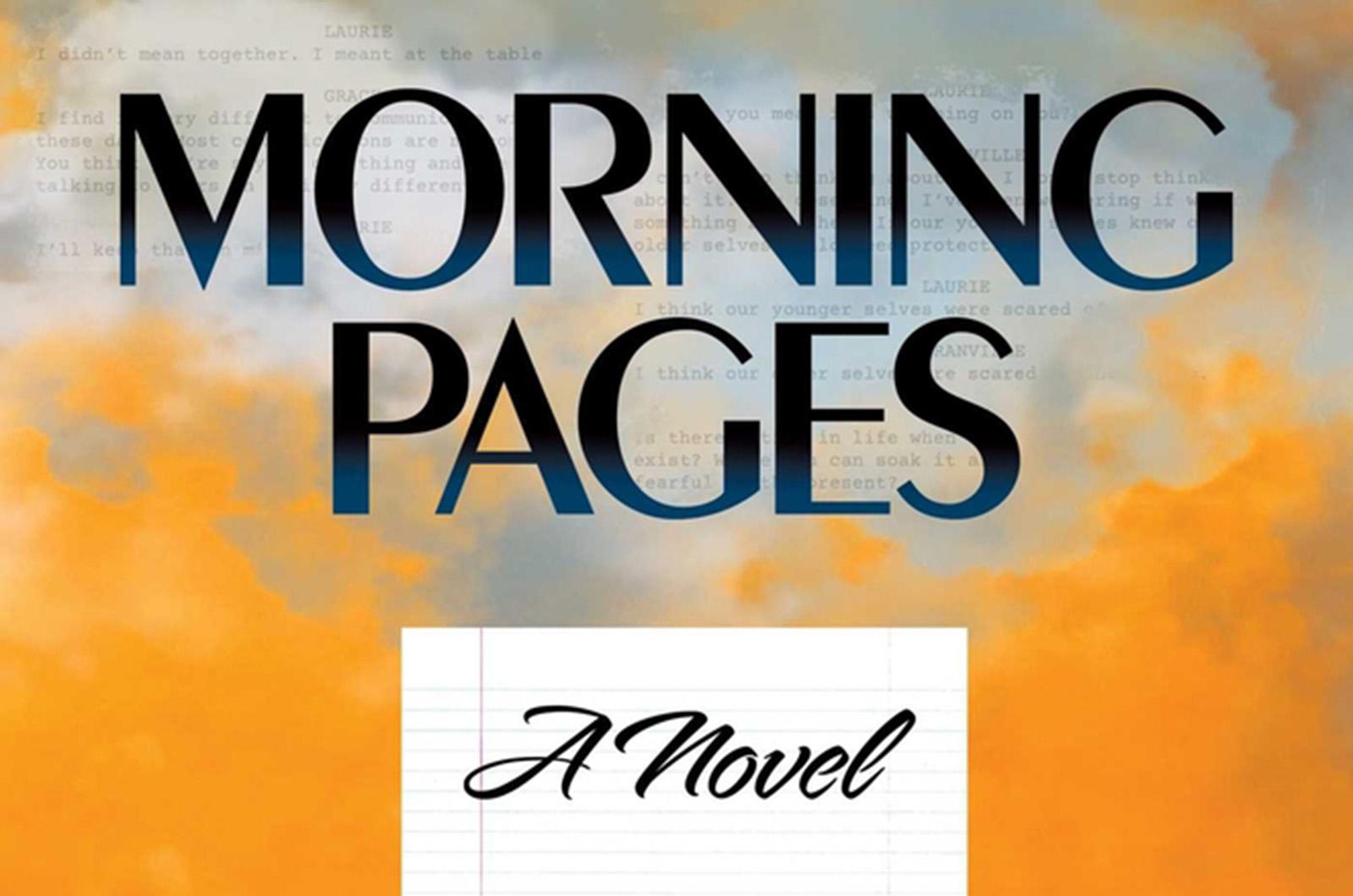Morning Pages by Kate Feiffer, Regalo Press 2024, $28.99, 380 pages.
The title of Kate Feiffer’s new novel comes from an exercise recommended by Julia Cameron in her bestselling book The Artist’s Way: a person’s “morning pages,” written at speed in stream of consciousness, are intended to break them out of a writer’s block and free up their creativity. And as Ms. Feiffer’s delightful book Morning Pages opens, her main character Elise Hellman badly needs such an exercise.
Elise is, as she sardonically describes herself, “a celibate middle-aged woman with writer’s block who is about to pee herself,” a once-promising playwright who’s now a substitute teacher who can’t get a play staged and has faced years of rejection. She’s divorced from her husband Elliot, and she’s currently living with her teenage stoner son Marsden while dealing with the melodramatic antics of her mother and her flamboyant Aunt Rosemary.
But the “morning pages” exercises she does (which form the bulk of the novel’s narrative) are more important than ever, because a waspish old friend/enemy at the Players Playhouse has offered her a lucrative commission for a new play, with one catch: the work is due in a mere 65 days, putting her on a tight deadline despite the chaos of her day-to-day life. As she works on her play Deja New, readers see its text evolve, complete with excisions and emendations, as she races against the clock (“God creating the world in one measly week has set up unhealthy expectations for the rest of us,” she wryly observes).
A quarter century ago, Elise’s play Simply Syrup received surprise critical acclaim. She went on to win a Drama Desk Award and an Obie, but life has since been rough. Her play The Golden Age for Insomniacs received a devastating review seven years ago: “While clearly not her intent, Hellman’s plodding play should help even the insomniacs in the audience fall asleep.”
All that professional promise seems to have dried up. Her “morning pages” are a desperate attempt to regain a talent she never thought she’d lose.
She feels completely cut off from her attention-seeking mother, and from Elliot.
“I wish I could pinpoint the moment when Elliot became disengaged and dismissive,” she reflects in her “morning pages.”
“I spend my nights digging through the emotional wreckage to find a moment that I know doesn’t exist.”
And Marsden likewise baffles her. She remembers his first step, his first word, all the firsts, but, as she sadly points out, she can’t remember the first long uninterrupted silence. His odd aloofness leaves her feeling like he’s a stranger (“I don’t know why he’s so bad at being a teenager,” she thinks).
Elise is dealing with all of this, everything from Marsden’s school problems to her mother’s health problems, while her deadline for Deja New creeps closer and closer, and Ms. Feiffer crafts it all into a smoothly readable kind of rhetorical duet, with the play’s development mirroring and counterpointing the escalation of events in Elise’s own life, a fascinating dramatization of how life and art feed off each other in the writing process. Elise is constantly fighting against distractions, but those distractions, warped and refracted, often make their way into the progressing drafts of the play.
Ms. Feiffer book glows with warm pathos and human insight. For a close-focus drama about a middle-aged woman working through writer’s block, Morning Pages makes for unexpectedly gripping reading.
The most involving part of the narrative is the subtle way Elise both grows and heals almost without her own volition. Everyone in her life seems to want things from her that she can’t supply; she sees the energy and optimism of people like her sister or her best friend and castigates herself for not having her own act together. The most prominent of these disjointed relationships, the most anxious reading, is the oddly distant bond between mother and son — Marsden is an enigma who’ll nevertheless be immediately recognizable to many parents.
“Nobody really finds themselves,” Elise thinks at one point. “They just find new places to get lost.”
But long before the end of Morning Pages, readers will be rooting for her to be wrong about that.
A book launch party will be held at the Carnegie in Edgartown on June 8 from 5 to 7 p.m.




Comments (1)
Comments
Comment policy »